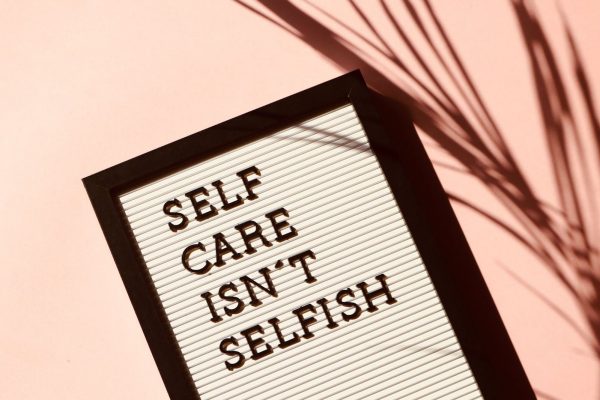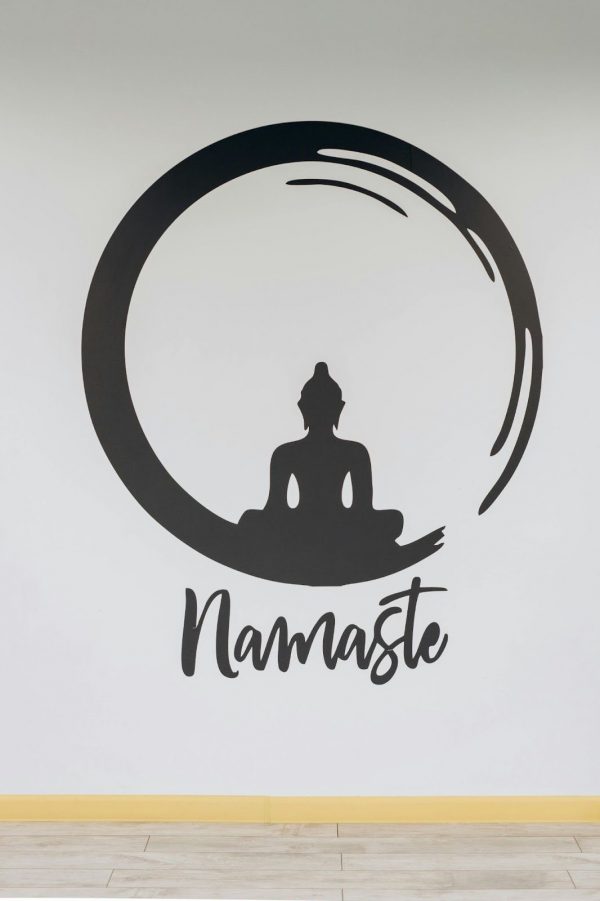| Written by Jessica Lelinho, MA, LPC, LCADC
We’ve all heard the old version of the golden rule: “Do unto others as you would have them do unto you” or the newer familiar version “Treat others as you would like to be treated.” I think it’s safe to say that we all follow that rule and yet I find myself questioning myself, do we truly follow that rule? Maybe we treat others how they would like to be treated, but I know reflecting on it, I don’t truly treat myself the way I treat others. Do we truly care for ourselves?

Am I Truly Practicing Self-Care?
- What activities come to mind when thinking about self-care?
- What feeling(s) are associated with self-care?
- Do I hesitate to engage in self-care?
- Why is it important for me to engage in self-care?
If you had a hard time answering these questions then you may not truly be practicing self-care.
When most people think of self-care they associate selfishness to be the same as self-care. But sometimes we have to be “selfish” and care for ourselves. Self-care encompasses everything that we do to care for ourselves and our well-being. Self-care is composed of four dimensions of our health: emotional, physical, psychological, and spiritual.
Engaging in self-care is important and studies have shown the strategies below to be effective in engaging in self-care. This post will focus on how to engage in self-care.
Effective Self-Care Strategies
Get Regular Exercise:
Even if it’s just 20 minutes a day, it’s better than nothing. Engaging in a 20 minute exercise routine or walking can help boost your mood and improve our overall physical health. When we think of exercise, I know I personally think of failure if I can’t do a 30 minute workout but keep reminding yourself to not be discouraged; break it down and do three ten minute workouts, over time it will add up to the total.
Eat Regular Healthy Meals and Drink Lots of Water:
It’s important to eat a balanced diet and drink water throughout the day. The National Academy of Medicine recommends adults drink 9 cups of water daily where one cup consists of 8 fluid ounces. Eating healthy and drinking water is shown to improve our energy and focus throughout the day. We all love coffee or tea or soda or even just beverages that include caffeine in them. While it’s okay to drink them, it’s also important to limit our caffeine intake.
Prioritize Sleep:
Make sure sleep is a priority just like caring for yourself. Make sure you’re getting enough sleep daily. The Center for Disease Control (CDC) suggests the following hours of sleep based on the following ages:
- Newborn (ages 0 – 3 months) 14-17 hours daily
- Infant (ages 4 – 12 months) 12-16 hours daily including naps
- Toddler (1-2 years old) 11-14 hours daily including naps
- Preschooler (3-5 years old) 10-13 hours daily including naps
- School Age (6-12 years old) 9-12 hours daily
- Teen (13-18 years old) 8-10 hours daily
- Adult (18-60 years old) 7 or more hours daily
- Adult (61-64 years old) 7-9 hours daily
- Adult (65 years and older) 7-8 hours daily
It’s important to have a sleep schedule. A sleep schedule refers to waking up and going to sleep. It’s recommended that we wake up and go to sleep at the same time daily; even on the weekends.
Additionally, it’s recommended to not use any electronic devices prior to bedtime. The light from the phone or screen can make it harder to fall asleep as it awakens our brain so it’s best to not use electronic devices prior to bedtime. I recommend not using electronic devices 30 minutes prior to bedtime – that way it can give our brain a break and get sleepy.
Engage In Mindfulness & Relaxation Techniques:
Go out of your comfort zone and explore mindfulness techniques, guided imagery, and breathing techniques. Try out a progressive muscle relaxation or engage in relaxation techniques.
Check out the app store on your phone or mobile device or check out YouTube for additional mindfulness techniques, guided imagery, breathing techniques, progressive muscle relaxation, and relaxation techniques.

Take the time to learn about yourself and journal by following these prompts. Incorporating these techniques and sticking to a schedule is important when caring for ourselves.
Goal Setting and Prioritize Your Goals:
Think about your future, what do you want to accomplish?
Set goals for yourself and prioritize the now goals and future goals. It seems hard to “let go” of a goal for now, but really focus on those short-term goals.
Reflect on your day and ask yourself “did I take on more than I can handle?” If you answered “yes” to that question, be okay with saying “no.” Try not to bite off more than you can chew; this is where a to-do list can be extremely helpful. As you go throughout your day, look at your to-do list periodically and cross off the tasks that were accomplished. This gives you a visual reminder and representation of all that you accomplished. Focus on what you have accomplished rather than what did not get done.
Practice Gratitude:
Practice gratitude daily. Always remind yourself of what you have and what you’re grateful for. Don’t focus on what you don’t have but rather what you do have.
Look On the Bright Side:
Have a positive attitude and mindset. Challenge those negative thoughts and see how you can turn them into positive thoughts. Eliminate negative self-talk and turn it positive.
Use Your Support Network:
Don’t be afraid to reach out to your support network. Identify those individuals who are supportive of you and lean on them when it’s needed.
Conclusion
Self-care isn’t selfish . . . it’s a necessity to practice. These are just a few tips on how to engage in self-care.
If you are struggling in utilizing self-care techniques, don’t hesitate to reach out for help. Struggling with utilizing self-care techniques is a common symptom of lack of stress management, anxiety, depression, and various other mental health challenges. A licensed professional can assist you in overcoming these challenges.
When Jessica is not providing therapy, she enjoys spending time with her family and friends, listening to country music, cooking, baking, and going to the beach.
Check out Jessica’s professional bio here
Email Us: info@exceptionalwellnesscounseling.com
Call Now: (908) 415-2042
NEXT STEPS & RESOURCES
-
- Are you ready to take your first step? Reach out to us.
- Do you feel you maybenefit from counseling during this time? Take the first step.
- Interested in online counseling? Learn More
- Interested in group counseling? Learn More

